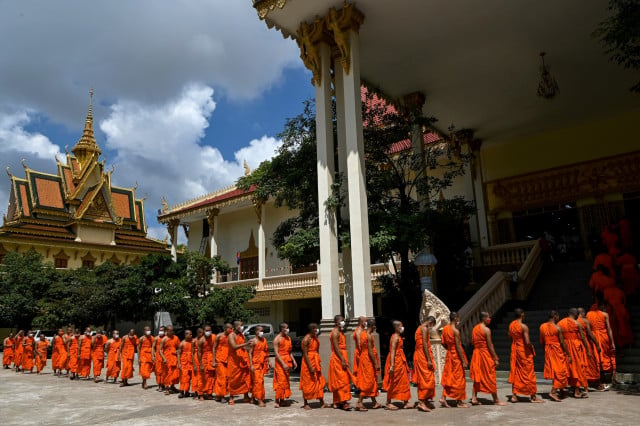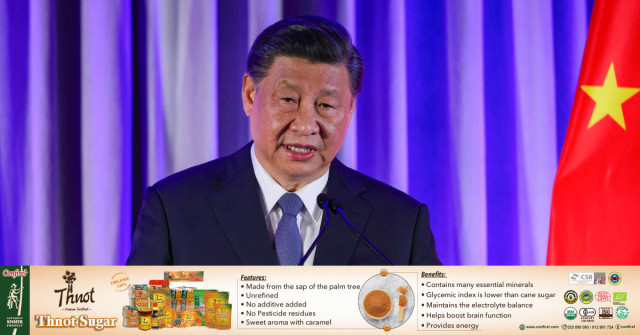How Cambodia Maintains Religious Harmony

- By Manghout Ki
- April 15, 2023 8:35 AM
Buddhism is the official religion of Cambodia. The 2019 Cambodia Inter-Censal Population Survey indicates that about 95% of the population identifies as Buddhist. However, the country is also home to a sizeable Muslim minority as well as smaller Christian and traditionalist populations.
Coexistence is generally positive compared to other countries in the region, such as Thailand, the Philippines, Myanmar, and even India in the South Asian region, which have experienced severe religious conflicts.
Over eighty percent of the population in the Philippines, for instance, identifies as Catholic. Nonetheless, the country is also home to sizeable Muslim and indigenous populations, especially in the southern region of Mindanao.
In the Philippines, there have been longstanding tensions and occasional clashes between religious and ethnic groups. In Mindanao, for instance, there have been conflicts between the Muslim minority and the Christian majority, with some Muslim groups seeking greater autonomy or even independence from the nation.
Hence, with religious populations like those with issues, this paper examines three factors which could contribute to religious harmony in Cambodia.
Tradition of tolerance and peace co-existence
Buddhist and non-Buddhist communities have coexisted peacefully for centuries in Cambodia, which has a long history of religious tolerance. For example, Brahmanism, or the belief in the Hindu gods and goddesses of Brahmanism, is a significant component of Cambodia's religious landscape, despite Buddhism's dominance. Many Cambodian Buddhists incorporate elements of Brahmanism, such as the worship of Hindu gods and goddesses and the performance of Hindu rituals, into their religious practices and beliefs.
This syncretism between Buddhism and Brahmanism is not unique to Cambodia, but it is a prominent aspect of Buddhism in Cambodia. It reflects the country's historical ties to Hinduism and Buddhism, as well as the influence of other religious traditions like animism and ancestor worship.
Despite differences in religious beliefs and practices, there is generally a high level of tolerance and mutual respect between Buddhists and followers of Brahmanism in Cambodia. This is partly due to the country's tradition of religious tolerance and respect for diversity, as well as the Buddhist and Brahmanic emphasis on compassion and nonviolence.
A culture of mutual respect
There is a culture of mutual respect and tolerance among religious groups in Cambodia, which contributes to the country's religious harmony. This is evident in a variety of ways, including participation in one another's religious festivals and activities.
Many Cambodians, regardless of their religious background, take part in the celebrations and activities of various religious communities. Buddhist Cambodians, for instance, may attend Christian or Muslim weddings, whereas Christian or Muslim Cambodians may attend Buddhist festivals such as Vesak Bochea Day.
In addition, Cambodia is renowned for its peaceful coexistence among people of various religious backgrounds, including in the education and employment sectors. The education system in Cambodia is secular and does not favour any one religion; students from diverse religious backgrounds attend the same schools and universities. There are also religious schools operated by various religious communities, but they are not the country's primary education system.
Similarly, Cambodian law prohibits discrimination on the basis of religion in the workplace, which is generally inclusive of individuals from diverse religious backgrounds. Employers are prohibited from discriminating against employees or job applicants based on their religion, and employees are generally free to practise their religion at work so long as it does not interfere with work duties.
Government’s role
The Cambodian government has taken steps to support and promote equal access to public services and employment opportunities for religious minorities. For instance, the government has supported the building of mosques, churches, and temples for various religious groups. In some instances, the government has provided land or financial assistance for these facilities' construction.
In addition, the government has taken measures to guarantee that religious minorities have equal access to public services and employment opportunities. Under Cambodian law, religious discrimination is prohibited, and the government has established legal protections for religious minorities.
In addition, the government has established the National Committee for the Management and Development of Religions to oversee and coordinate religious affairs. The committee consists of representatives from various religious communities and works to promote religious tolerance and harmony in Cambodia.
Ki Manghout is a master student in international relations at Griffith University, Australia















